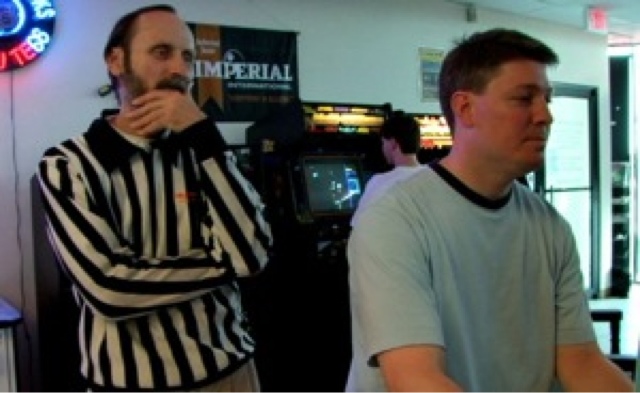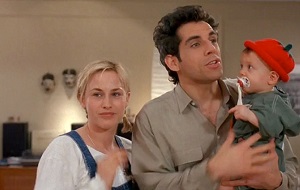4/5
Television reporter Angela (Manuela Velasco) and her cameraman Pablo are filming an episode of their show While You Were Sleeping at a firehouse where they plan on tagging along to film some calls. After patiently waiting all night, they finally get a call at an apartment building. Unfortunately for them, its a call that quickly turns into a chaotic night for everyone involved.
If Cloverfield & The Blair Witch Project had a zombie baby, it would be [REC]. This Spanish-subtitled film is certainly in the Zombie Found Footage category, and there isn't a lot of company there. If you're NOT a fan of Found Footage, you might as well pass on this one. It's contains all of the typical themes (night vision, shaky cam, quick cutting, lights out). But if you're a fan of the genre, you're going to be treated to all of those themes executed perfectly.
The film starts off with Angela rehearsing the intro to their show. She begins to walk through the firehouse interviewing various firemen. This gives you a false sense of security because you know what's on the horizon. The film is guilty of hitting a bit of a slow patch in the beginning but when it finally takes off, you're in for a ride. These are probably the most terrifying zombies I've seen on film. They are reminiscent of the Rage-virus zombies in 28 Days Later but are more threatening and bloodthirsty. The tension is reinforced by the claustrophobic conditions of shooting the film with a handheld camera in a historic apartment building. The entire film is basically shot in either the hallway of the apartment building, or in the various apartments within. Dark entryways, white paint cracking from the blood soaked walls. There were some really innovative techniques used in this film and with it being made on a budget of just under $2M, the minimalist story-line and progressive tension didn't need gratuitous gore (although you'll get your fair share of blood). They apply the Blair Witch technique of compounding tension to a point of climax, but doesn't hesitate to bare its teeth along the way. A day later some of the shots are really sticking with me - aiming the camera down from an upper floor and seeing the zombies on lower floors looking up, Pablo placing the only camera on the floor to help subdue a zombie in the hallway & then picking it back up again, and of course the final scene in a penthouse apartment. When this film grows its legs it really takes off, and comes together in the end. The final scene had me on the edge of my seat.











